Seven Years Since the Passing of Rabbi and Rebbetzin Bazri of Be'er Sheva: "They Sparked a Tremendous Transformation in the City"
Seven years ago, Rebbetzin Rachel Bazri passed away, and shortly after, her husband Rabbi Binyamin also passed. They established and led the Orthodox community in Be'er Sheva for many years. Their daughter shares heartfelt stories about the hundreds of families drawn closer to Judaism because of them, the yeshiva and school established, and a class her mother started during a period of personal hardship.
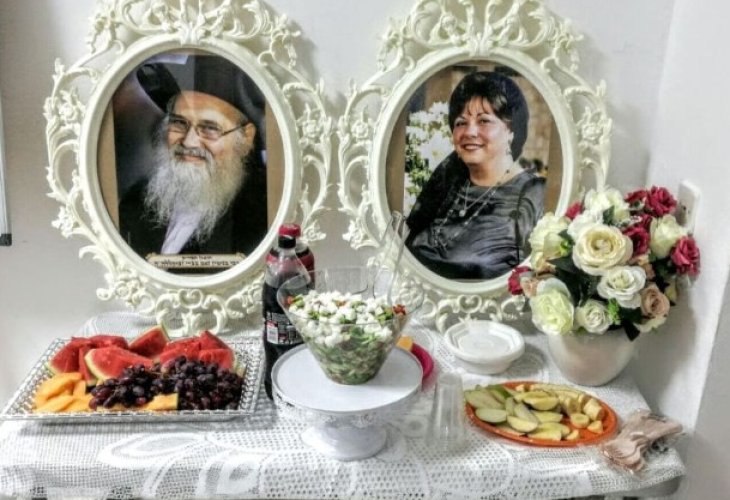
At the beginning of the month of Iyar, the Orthodox community in Be'er Sheva marks seven years since the passing of Rebbetzin Rachel Bazri, who, about 40 years ago, established the community alongside her husband, Rabbi Binyamin Bazri, who passed away just seven months after her.
"Mom was an extraordinary figure," notes their daughter, Rebbetzin Shoshi Biton, who heads the girls' school her mother founded in the city. "Today, there's much talk about women's empowerment, and Mom was a living example of it. She knew how to empower everyone around her, which was very special about her."
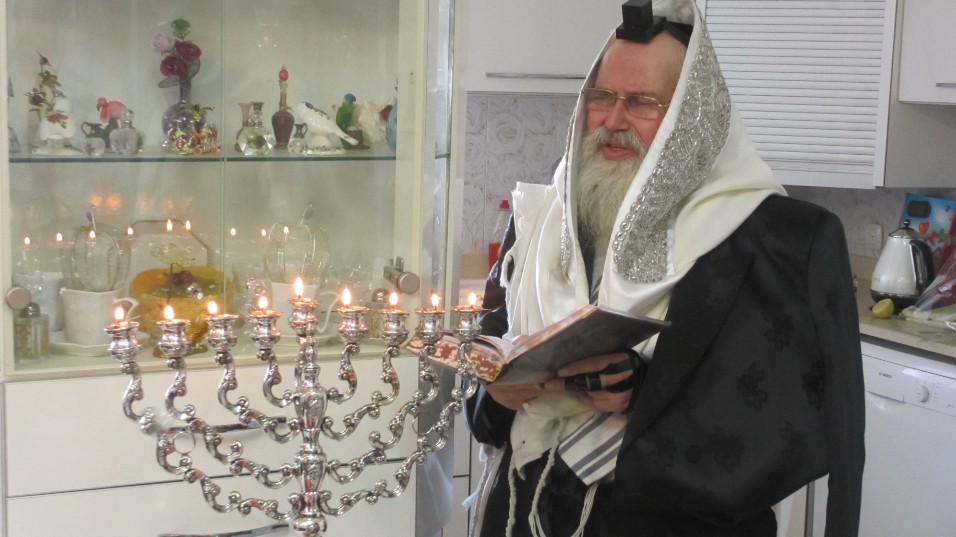 Rabbi Binyamin Bazri
Rabbi Binyamin BazriRebbetzin Shoshi mentions that her mother married at a young age, just seventeen and a half, and they soon moved to live in the city of Ofakim, where they were on a mission of drawing distant people closer to Judaism. "It wasn't easy for Mom to leave her family and move to an unfamiliar place, but she followed Dad through everything because she understood this was her mission and purpose in the world."
"Mom had a woman's wisdom," her daughter adds. "I often recall how she took care of Dad, who was ill with Crohn's and suffered almost unending attacks. When he had an attack, it was very hard for him to function, and Mom, with her great wisdom, knew how to influence him to rest. She prepared him food and drink and inquired about his well-being, all slowly and patiently. There's no way to explain it, but while other Crohn's patients in his situation couldn't manage a normal life, Dad quickly recovered because Mom's patience affected him, allowing him to bounce back from an attack to give a lesson, although only we children knew how much he suffered. That was Mom's power; she didn't pressure Dad but behaved with feminine wisdom, the same influence she had on hundreds of girls who studied in the school she started in the city."
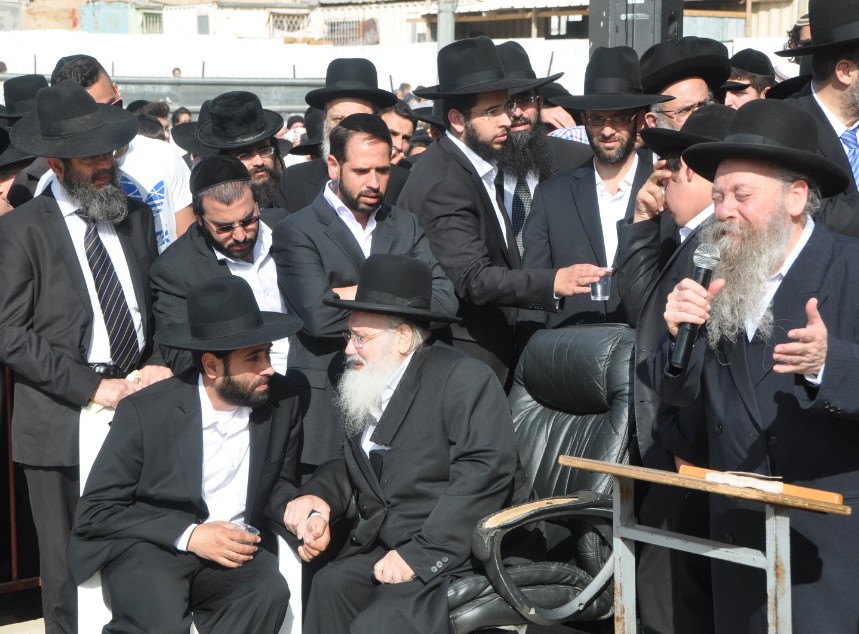
Reflecting the Beautiful Side of Judaism
"Mom passed away at a very young age, at 54," her daughter notes, "Dad passed at 56. Yet both accomplished more in their lives than people twice their age. They raised a wonderful family—twelve children—and established a vast Orthodox community in Be'er Sheva. Today, when people visit, they can't believe it, as our community maintains vibrant Torah lives, filled with holidays, Shabbats, and an atmosphere of holiness and modesty, much like a small Bnei Brak."
When did your parents come to Be'er Sheva?
"As I mentioned, they lived in Ofakim for fourteen years before moving to Be'er Sheva, twenty-eight years ago. Even while living in Ofakim, Dad would travel to give lessons in Be'er Sheva, mostly to groups of working people. One day, an unfamiliar man passed by the class and stopped Dad, saying, 'Rabbi, I want my child to grow up like that,' pointing to the lesson's participants. Dad replied, 'No problem. Find five families without a television, who observe Shabbat and head coverings, and I'll open a Talmud Torah here.' At that time, Be'er Sheva was devoid of any religious environment. That man searched and finally found four suitable families, and that's how the Talmud Torah 'Hamaayan' was established, which still exists today, educating hundreds of students from excellent families. Over time, the religious community in the city grew stronger and wished to gather in a specific city area. Dad, along with residents, approached the mayor, seeking to establish a community, but were outrightly rejected with the reasoning, 'We don't want to become Bnei Brak or Jerusalem.' But they persisted. Finally, the mayor consented to allocate them the city's most remote and desolate corner. Remarkably, over the years, this area flourished and became the Orthodox district in Be'er Sheva, one of the city's prestigious and central areas."
The true development, Rabbi Shoshi says, began once they moved to live in the city. "While in Ofakim, we had a nice home, yet the furniture was relatively old. In Be'er Sheva, my parents ensured our home was very well-kept. Dad stressed to us that part of our duty was to show people approaching Judaism that it doesn't make us neglect our homes or attire, quite the opposite. Dad also invested in all 'This is my God, and I will glorify Him' mitzvot for that very reason."
Here, Rebbetzin Shoshi notes something interesting: "After Mom's passing, Dad called me one day and asked: 'Shoshi, do you think Mom and I always agreed? Not at all. We were entirely different.' Then he showed me a document he once wrote: 'Mom loved couscous, and I kugel; Mom loved flowers, and I, landscapes; Mom preferred Hasidic songs, and I, Mizrahi music. But our secret was knowing how to complement and respect each other.' Dad also shared what I already knew—they both had artistic souls, but he surprised me with what I didn't know—'Our tastes differed, so we decided instead of arguing, I would be responsible for designing my study area in the living room, where I usually am, and Mom would design the other rooms. Thus, arguments or disagreements never arose between us.'"
The rabbinic family also recalls their Shabbat tables. "Though we were blessed with a large family, Mom never thought to ease her burden by serving disposable dishes. Quite the contrary, she always emphasized to us that we ought to honor our Shabbat table. She always went to great lengths to use the best dishes, even on days she was very sick and weak, she never gave up on investing in the Shabbat table."
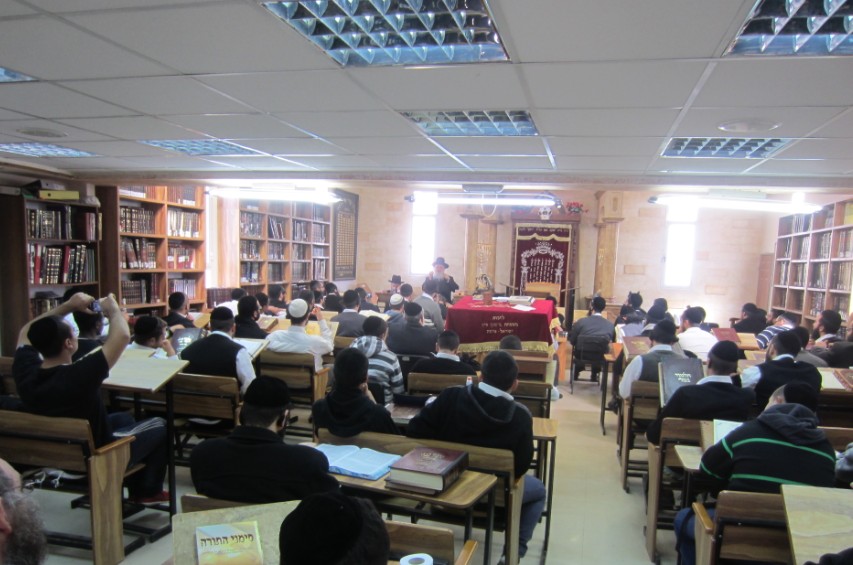 Students from the Yeshiva in Be'er Sheva
Students from the Yeshiva in Be'er Sheva
The Secret: Influencing with Love
Rebbetzin Shoshi goes back to her childhood years. "When we lived in Ofakim, we were part of an Orthodox community and neighbors to Rabbi Shimshon Pincus. I studied at the 'Hadasim' school in Tifrach. When we moved to Be'er Sheva, I was fourteen and found myself in complete isolation. There was no girl my age with a similar perspective, and I often complained to Dad, saying, 'I wish we stayed in Ofakim. What do I have to find here?' But Dad always replied, 'You, our children, are our partners. You were fortunate to grow up in a home of Torah-observant parents, but many haven't had the chance to know their Father in Heaven, and our role is to help them discover Him.'"
Indeed, they were blessed with great divine assistance, and besides the Talmud Torah, a yeshiva was also established in Be'er Sheva. "Initially, it was a small yeshiva with very few students, but over time more and more joined," describes the Rebbetzin.
What was your parents' secret? How did they manage to draw so many souls closer?
"Both Mom and Dad never followed a preachy approach. They never criticized or rebuked, but worked solely from a place of love. When they wanted to suggest something, they simply asked pleasantly, and the students couldn't resist. Dad often encountered students who arrived at his Shabbat lessons with cell phones in their pockets, and sometimes they would ring in the middle. He never commented, and today I see how those very students who once came with earrings and phones are now 'avrechim.' It's clear to me that it was Dad's silence and restraint that achieved it.
"Mom also adhered to this method. For years, she ran a project during the month of Elul, bringing many girls for Selichot prayers at the large stadium. Often, she was made aware that the girls didn't always come modestly dressed. Mom returned home and consulted Dad. She asked if she should comment on it, but Dad said, 'The fact that the girls come to pray shows they want to connect. They don't need remarks, just your loving eyes and embrace. No more than that, don't worry.' Eventually, many girls returned to their faith and attributed it to 'Rebbetzin's embrace.' Some said, 'When Rebbetzin shook our hands after the Selichot, we were embarrassed to return immodestly, and the next time, we already appeared differently. That was Mom and Dad's method, their path, and it's the one we strive to continue.'"
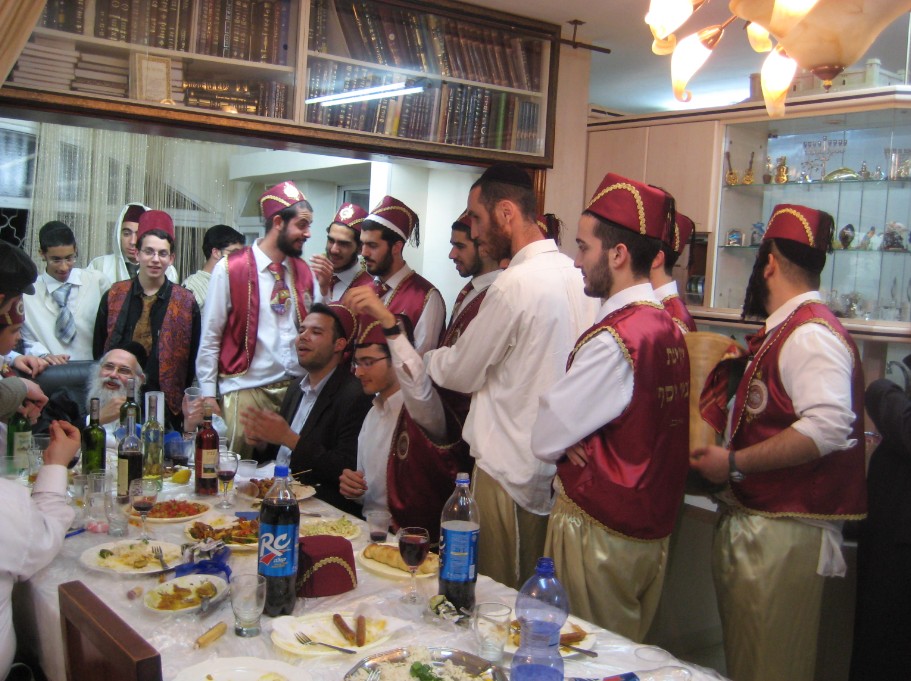
A Lesson from Suffering
Yet, amidst their blessed activities, a situation arose that halted their routine. "Mom fell ill," Rebbetzin recounts. "The illness was discovered when she gave birth to Shlomo Betzalel, our youngest brother. Until then, although she complained of pain, no one suspected the cause. The diagnosis was confirmed during childbirth. I was eighteen at the time, just starting my studies at a new seminary in Jerusalem, living in a dormitory. I distinctly remember the phone call informing me of my new brother's birth, alongside a request: 'Come home, you'll need to care for the baby.'"
How did your mother receive the news of her illness?
"The initial period was very tough for her as she underwent grueling chemotherapy treatments, during a time when medications to ease side effects hadn't yet been developed. Mom suffered greatly, yet accepted it lovingly, constantly telling us, 'Hashem didn't bring me this illness for nothing, there's a purpose to it.' Amidst this pain, she asked Dad to start a class at home every Friday night. Initially, only a handful attended, but as word spread, more people heard of the lesson and it thrived, with even students sitting on windowsills and kitchen counters to listen. The lesson was incredibly important to Mom, and every Thursday, she baked large quantities of cakes and cookies to serve. We, knowing her suffering at the time, protested, 'Mom, there are bakeries, you don't need to work hard.' But Mom insisted, 'Only I will prepare the food for the class. I know this food will bring people back to faith, and I won't give up the privilege of putting prayers into the pastries, and tears into the cookies. Nobody will take that merit away from me.'"
According to Rebbetzin Shoshi, many girls also listened to the class. "Girls would sit in the room with Mom, who embraced them and influenced them in her unique way. Mom's symbol was gentleness and love, with zero judgment. She viewed every person as a divine soul, and the girls were deeply connected to her through bonds of love."
The exceptional class quickly led to the establishment of another boys' yeshiva and a girls' seminary. "Today," says Rebbetzin Shoshi proudly, "There are nearly 80 'avrechim' in the yeshiva. They all come from secular backgrounds, but now live in the community, leading Torah lives as 'avrechim' with large families. Today, after Dad's passing, my eldest brother continues to lead the yeshiva, while I follow Mom's path in running the girls' seminary. We feel blessed to continue their life's work."
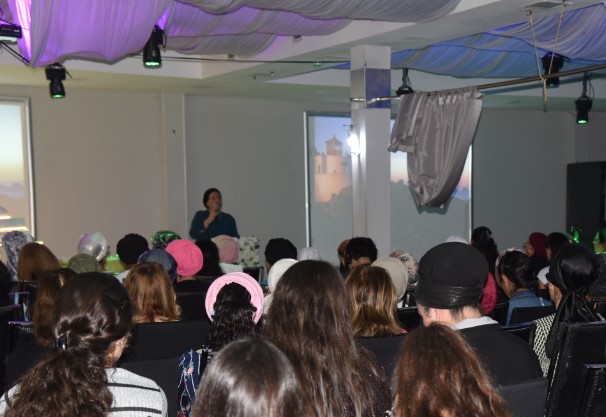 Rebbetzin Shoshi
Rebbetzin Shoshi
Nothing is More Important Than Approaching the Distant
Her last days, just seven years ago, were filled with suffering spanning sixteen years, alternating between relative calm and harsh periods, until the final, unbearable flare-up, with doctors declaring no possible return. "Mom experienced terrible suffering," says Rebbetzin painfully, "I wish for us never to endure such agony, but she constantly repeated the words: 'Master of the Universe, if you gave me this pain and distress so another Jew could strengthen their faith, let that be my reward.'
"The day before she passed," continues the Rebbetzin, "Mom asked for all of us. She was completely lucid and spoke clearly, saying: 'I ask of you, my sons and daughters, to respect one another, to encourage and honor each other. Ensure that the elder respects the younger, and the younger respects the elder. Use only words of respect and esteem, that's what will empower you.' She also added: 'Continue assisting Dad with the life mission he built with his ten fingers, and know that if a Jew knew what it meant to draw distant people closer, he would abandon all matters and focus only on this.' Those were among her last sentences before she fell into a coma, from which she never awoke."

